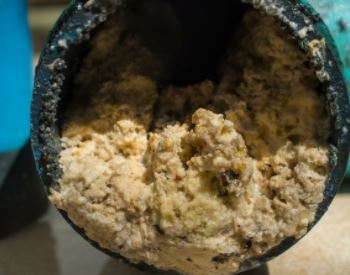Commercial Garbage Disposal Food Waste To Be Banned
15th Jan 2018

State and local regulators are ramping up their efforts to cut down food waste. Beginning in 2014 Massachusetts enacted legislation that banned hospitals, universities, hotels, large restaurants, and other big businesses and institutions from discarding commercial garbage disposal food waste, with plans to extend the regulation to homes as well. Their goal is to divert a third of the 1.4 million tons of organic waste produced every year from landfills by the end of the decade. Instead, the large amounts of organic materials can be sent to composting facilities.
The organics ban has forced institutions and businesses to revise their food management practices. A great alternative to to keep food solids and organic waste out of the landfill and sewer system is the Drain-Net Garbage Disposal Replacement Unit (also called a Wet Waste Interceptor). The stainless steel unit sits under compartment sinks, where the water passes through a strainer drawer which strains out the the solid food particles. When full, the strainer drawer is emptied into the trash or composting container. The unit reduces clogged drains due to coarse solid buildup and can improve grease trap efficiency. The Garbage Disposal Replacement Unit (GDRU) is preferred over electric garbage disposals because it uses less water, requires no electricity, is less dangerous to employees, and won’t break down.
California is the latest state to crack down on food waste. California Air Resources Board recently announced a push to halt disposal of nearly all organic waste by 2025. Organic matter makes up nearly half of California’s solid waste, which is projected to reach 80 million tons by 2020. Proponents of the regulations say converting food scraps into compost or fuel, “can really capture a lot of value,” says Ryan McCarthy, policy adviser for the Air Resources Board. Restaurants are already figuring out ways to better handle their food scrap, and the GDRU is a great place to start. Rather than clogging pipes and sewers, the food scrap can be composted and turned into fuel, and actually make money.
